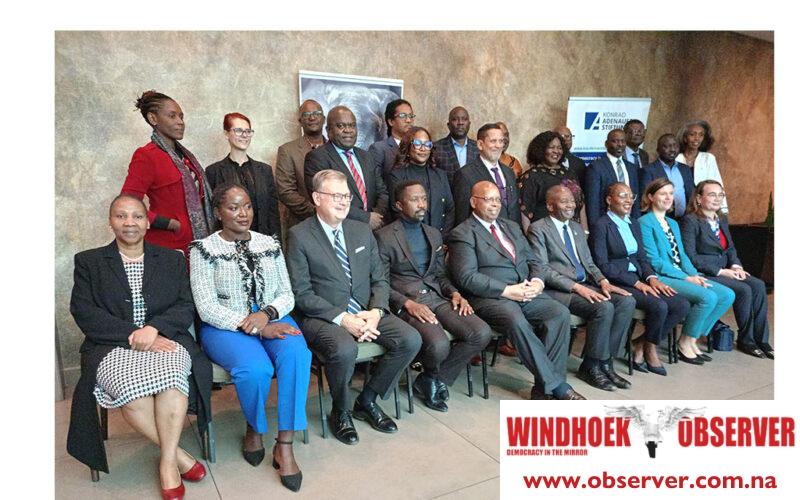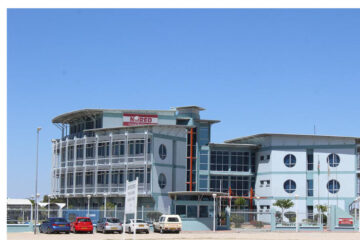Moses Magadza
The National Assembly of Namibia is dedicated to creating a resilient and prosperous society, knowing that the country’s future depends on today’s decisions.
The Speaker of the National Assembly, Professor Peter Katjavivi, said this when he addressed a two-day regional workshop on fostering sustainable futures, which was held from 9 to 10 July in Windhoek.
The SADC Parliamentary Forum (SADC PF) partnered with the International Conservation Caucus Foundation (ICCF) and the Konrad Adenauer Stiftung (KAS) to convene a regional workshop on “Fostering Sustainable Futures: Integrating Climate Resilience in Southern Africa.”
Katjavivi told the workshop that climate resilience is crucial for social and economic stability.
“Recognising the role of ecosystem services, such as clean water, fertile soils, and biodiversity, is essential. These services support our well-being and economic prosperity,” he said.
Katjavivi said the country’s natural environment, including deserts, savannas, and coastlines, is vital to people’s livelihoods.
“However, these resources are under threat from climate change, overexploitation, and underutilisation of natural benefits,” he told the audience, which included Heather Sibungo, Namibia’s Deputy Minister of Environment, Forestry, and Tourism; Advocate Jacob Francis Nzwidamilimo Mudenda, Speaker of Parliament of Zimbabwe, Lukas Muha, Chairperson, National Council of Namibia; and Dr. Thorsten Hutter, German Ambassador to Namibia.
He said the country has embarked upon a new initiative in the form of green hydrogen, a strategic project that is raising great expectations in the country and beyond.
This step will improve trade in the region, he added.
According to Katjavivi, climate-related disasters threaten the country’s economic prosperity and human development.
Therefore, strengthening mechanisms and frameworks at all levels is essential, requiring active stakeholder engagement.
“We must redeploy our limited resources to address these challenges. As parliaments, we must ensure resources are allocated to achieve development goals. We must establish regulatory frameworks for collective prosperity and meet government targets. It’s also crucial to consider all societal needs in our leadership,” Katjavivi added.
He highlighted the importance of access to green investments and export opportunities, which he said are vital for sustainable development.
“Exploring climate financing models and related legal frameworks supports our initiatives. Legislators can and must influence budgets for clean technology and resilience measures,” he said.
He said parliaments must also amplify the voices of the vulnerable by creating policies that reflect the people’s needs, adding that the workshop was an opportunity for regional collaboration and sharing best practices.
“Together, we can amplify efforts and achieve greater impact,” he said as an encouragement to parliamentarians.
He stressed that raising awareness among parliamentarians about the environmental impacts of extractive industries and emphasising sustainable practices is crucial, as efforts in ecosystem preservation and climate adaptation would build resilient communities and ensure a sustainable future.




